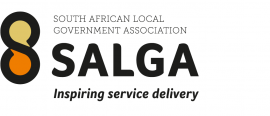
The national executive committee of the South African Local Government Association (SALGA) has expressed concern at the weaknesses of municipal credit control and debt collection mechanisms in the country’s councils.
The discontent comes in the wake of concerning revelations by Auditor-General Tsakani Maluleke last week when releasing the 2020/21 consolidated general report on local government audit outcomes.
The SALGA NEC made the concession last week during its meeting last week in Kimberley, Northern Cape.
The meeting followed a series of engagements with municipalities in the province on 21 and 22 June 2022.
The NEC met with Mayors, Speakers, Whips of Council, Municipal Managers and Chief Financial Officers from municipalities in the province against the backdrop of the release of the AGSA’s report on municipal audit outcomes.
SALGA in a statement said the NEC engagement with member municipalities in the province saw the opening up of conversation that brought deep insight into the major issues affecting municipalities and their communities.
“Like elsewhere in the country, the management and solidity of coalition rule at local government level remains a challenge in the province. The November 2021 Local Government Elections saw the formation of 12 multi-party governed municipalities.
“In response to the rising trend of coalition governments since the 2016 Local Government Elections, SALGA, in close collaboration with the Dullah Omar Institute, drafted a Coalition Government Framework that provides practical guidelines to political parties and councillors on the formation and management of coalitions in local government.”
SALGA said while the framework was not promulgated, municipalities are encouraged to draw lessons from the framework, which offers “practical guidance on how political parties can manage such coalitions in a manner that ensures the sustainability of municipalities and delivers the best outcomes for local communities”.
The inability of municipalities to manage their finances and collect revenue from ratepayers has a severe impact on their financial viability, the association said.
SALGA spokesperson, Tebogo Mosala, said it is worrying that only five Northern Cape municipalities received clean audits, while others were given adverse opinions.
“A few had difficulty submitting their financial statements on time, and this may as well tell a story about the services municipalities in the province deliver, and their ability to earn the public’s trust and confidence.
“The NEC urged municipal leaders in the province to reflect on the state of municipal financial performance, while identifying the root causes of persistent challenges that warrant accountability and consequence management,” she said.
She said SALGA would continue to avail critical interventions such as Councillor Training and Capacity Building Programmes and the Municipal Audit Support Programme (MASP) in an effort to strengthen financial management capacity building in the sector.
Separation of powers and functions
SALGA said a matter of critical importance that emerged during the NEC and Northern Cape municipal leadership engagement was the decision taken by Sol Plaatje Municipality to appoint its Chief Financial Officer (CFO) to the position of acting Municipal Manager (MM).
“True to SALGA’s mandate to provide advisory services to its member municipalities, the organisation wrote to the Mayor of Sol Plaatje Municipality and recommended that the appointment be rescinded. The CFO and Municipal Manager cannot be the same person.
“The Municipal Finance Management Act (MFMA) defines and separates the role and responsibilities of mayors, councillors and officials in the interest of oversight, accountability and transparency, and the action taken by the municipality was not in accordance with the financial governance principles espoused in the Act.” – SAnews.gov.za


